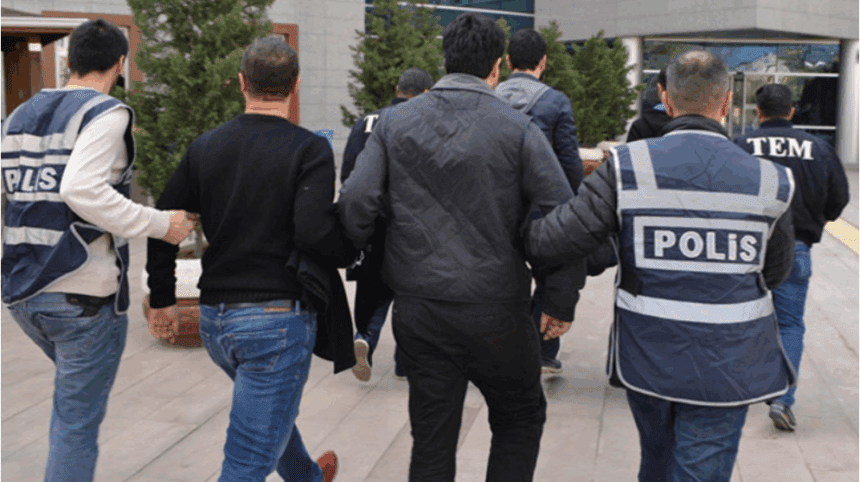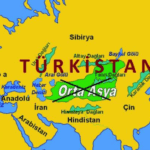The Ankara Chief Public Prosecutor’s Office has issued detention warrants for 22 people, including active-duty and retired military officers, in the latest operation against alleged followers of the faith-based Gülen movement, even as newly released figures reveal that almost 35,000 teachers were removed from their posts in the post-2016 purge and largely kept out of public service.
According to Turkish media, the suspects in the Ankara operation include five active-duty officers of various ranks, three active-duty noncommissioned officers, two dismissed officers, four retired officers, two retired noncommissioned officers, two dismissed noncommissioned officers, three public employees and one private-sector worker. The prosecutor’s office said the individuals were identified through so-called “payphone investigations,” a method that has become emblematic of Turkey’s post-coup legal architecture.
At the same time, new figures released by the education ministry and highlighted by SCF show that 34,795 teachers were dismissed under state of emergency decrees over alleged Gülen links, with only 7,063 reinstated by the State of Emergency Commission, the special body created to hear appeals from purge victims. The numbers suggest that roughly four out of five teachers removed in the name of security have never been allowed back into the profession.
From corruption probes to a permanent purge
The twin developments underscore the longevity and breadth of President Recep Tayyip Erdoğan’s campaign against the Gülen movement.
Erdoğan’s confrontation with the movement dates back to December 2013, when sweeping corruption investigations implicated ministers, businessmen and, indirectly, members of his family and inner circle. The president dismissed the investigations as a Gülenist “judicial coup” and a conspiracy against his government, and from that point began systematically targeting individuals and institutions seen as aligned with the movement.
In May 2016 Turkey’s National Security Council designated the Gülen network a terrorist organization. After the failed coup attempt in July of the same year, which Erdoğan immediately blamed on Gülen, the label became the legal and political backbone of an extraordinary purge. The movement strongly denies any involvement in the coup or in terrorist activity.
Following the coup attempt, the government declared a state of emergency (OHAL) that remained in place until July 19, 2018. During this period it ruled largely by government decrees, known as KHKs, which allowed thousands of names to be listed and summarily removed from state posts without individual court decisions and without prior parliamentary scrutiny.
More than 130,000 public servants were dismissed by these decrees, including 4,156 judges and prosecutors and over 24,000 members of the armed forces. Teachers and school staff formed one of the largest professional categories targeted, with the education ministry alone dismissing 34,795 teachers over alleged Gülen links. According to the new figures, the State of Emergency Commission, which reviews appeals, has reinstated just 7,063 of them, confirming the vast majority of the original decisions.
Payphone cases and the logic of suspicion
The 22 new detention warrants in Ankara illustrate how, nearly a decade after the coup attempt, investigations continue to expand based on patterns of communication rather than concrete acts of violence.
Prosecutors say the suspects were flagged through public payphone records. The core assumption of these “payphone investigations” is that a Gülen-affiliated handler uses a single payphone to call his contacts in sequence. Once one alleged member is identified in the call log, other numbers dialed immediately before or after that call are treated as suspicious. The authorities do not possess the content of the calls; instead, they infer membership in a terrorist organization largely from the sequence and repetition of numbers dialed from a given payphone over time.
This method has become a key evidentiary pillar in many Gülen-related cases, especially within the military and security services. Defence lawyers and human rights advocates have long criticized it as a form of guilt by association dressed up as technical data analysis, arguing that an ordinary citizen can be drawn into a terrorism investigation simply by appearing near someone else in an anonymous call list.
Despite such criticisms, the technique continues to underpin new operations like the latest wave of warrants in Ankara, demonstrating how the state’s investigative tools against alleged Gülenists have been normalized and institutionalized.
Lives overturned and doors closed
For those dismissed or targeted, the consequences go far beyond loss of employment or a single criminal case.
Former public servants removed by emergency decree were not only fired but also banned from working again in the public sector. Many saw their passports cancelled, limiting their ability to seek work or asylum abroad. The government also flagged their files in the social security database, effectively warning potential employers in the formal private sector that the individual had been purged over alleged terrorism links.
In practice, this has pushed many into uninsured, precarious jobs far below their qualifications. Teachers, judges, military officers and civil servants once occupying stable, middle-class positions have had to survive by working off the books in physically demanding or low-paid work, often without basic workplace safety. Rights groups have documented cases of former public servants dying in occupational accidents in these new roles, as well as numerous reports of psychological distress, family breakdown and social isolation.
Thousands of others have left the country altogether, fleeing the crackdown via irregular routes to Greece and other neighbouring states before seeking asylum in Europe or North America. Many describe themselves as de facto stateless: unwanted at home, yet struggling to rebuild lives and careers abroad.
A campaign without a clear endpoint
According to the latest figures from Turkey’s Justice Ministry, more than 126,000 people have been convicted on charges related to the Gülen movement since 2016. Of these, 11,085 remain in prison. Legal proceedings are ongoing for over 24,000 individuals, while another 58,000 are still under active investigation nearly ten years after the coup attempt.
Against this backdrop, the new Ankara detentions and the fresh confirmation of the scale of the teacher purges do not represent isolated events but rather snapshots of a continuing system. What began as an emergency response to a traumatic night in July 2016 has evolved into a long-term restructuring of Turkish public life, in which suspicion of Gülen links can still trigger arrest, ruin careers and close off any realistic path back into normal civic existence.



